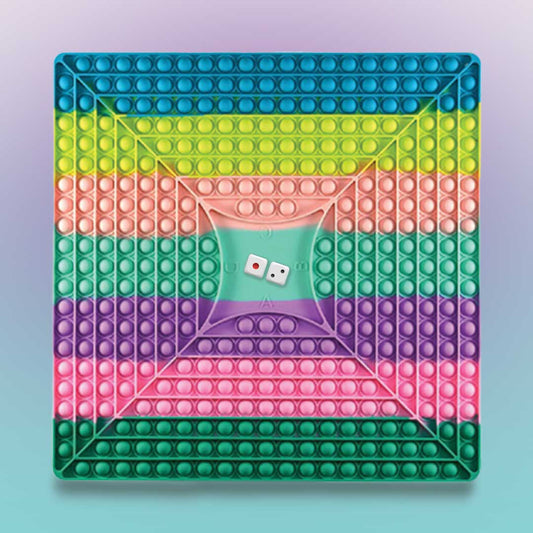Non-Toy Gift Ideas for Kids
In recent years, there has been a growing trend among parents and caregivers to seek out non-toy gifts for children. This shift is driven by a desire to reduce clutter, promote meaningful experiences, and provide practical items that children can use and enjoy over time. This report delves into various non-toy gift ideas for kids, exploring their benefits, categories, and specific examples. The information is drawn from multiple sources, ensuring a comprehensive and well-rounded perspective.
Introduction
The overwhelming presence of toys in children's lives can lead to clutter and a lack of appreciation for the items they receive. Many parents have observed that toys often end up broken, lost, or forgotten shortly after being received. This has led to a growing interest in non-toy gifts, which can offer more lasting value and promote a range of skills and experiences. Non-toy gifts can be practical, educational, and memorable, making them an excellent alternative to traditional toys.
Benefits of Non-Toy Gifts
Non-toy gifts offer several advantages over traditional toys:
- Reduced Clutter: Non-toy gifts help keep homes organized and free from the overwhelming presence of toys that are often quickly outgrown or forgotten.
- Promote Practical Skills: Many non-toy gifts are practical items that children can use in their daily lives, helping them develop important life skills.
- Encourage Experiences: Gifts that focus on experiences rather than material items can create lasting memories and promote family bonding.
- Educational Value: Non-toy gifts can be educational, helping children develop cognitive, creative, and problem-solving skills.
- Long-Lasting: Practical and experience-based gifts often have a longer lifespan than toys, providing value over an extended period.
Categories of Non-Toy Gifts
Non-toy gifts can be categorized into several broad groups, each offering unique benefits and opportunities for children.
1. Practical Gifts
Practical gifts are items that children can use in their daily lives. These gifts are often appreciated for their utility and can help children develop important skills.
Examples:
- Clothing: New outfits, pajamas, or personalized clothing items can be both practical and exciting for children. Many families have traditions of giving pajamas on Christmas Eve (Love Love Love Blog).
- Bath Products: Special towels, bathrobes, and fun bubble baths can make bath time more enjoyable and are practical gifts that children will use regularly (Love Love Love Blog).
- Mealtime Essentials: For younger children, a basket of mealtime essentials such as bibs, plates, and utensils can be a thoughtful and practical gift (What Moms Love).
2. Educational Gifts
Educational gifts are designed to promote learning and development in a fun and engaging way. These gifts can help children develop cognitive, creative, and problem-solving skills.
Examples:
- Craft Supplies: Craft supplies such as paint sets, coloring posters, and kinetic sand can foster creativity and provide hours of entertainment (Margin Making Mom).
- Books: Personalized books that feature the child's name or likeness can make reading more engaging and special (Love Love Love Blog).
- STEM Kits: Science, technology, engineering, and math (STEM) kits can provide hands-on learning experiences that promote critical thinking and problem-solving skills (Best Products).
3. Experience-Based Gifts
Experience-based gifts focus on creating memories and providing opportunities for children to explore new activities and interests. These gifts can be particularly meaningful and long-lasting.
Examples:
- Tickets to Events: Tickets to concerts, plays, sports games, or other events can provide exciting experiences that children will remember for years to come (Nourishing Joy).
- Memberships: Annual memberships to local attractions such as zoos, museums, or amusement parks can provide ongoing opportunities for family outings and learning experiences (Healthy Happy Impactful).
- Creative Classes: Enrolling children in classes such as art, music, dance, or cooking can help them develop new skills and interests (Healthy Happy Impactful).
4. Sentimental Gifts
Sentimental gifts are items that hold special meaning and can create lasting memories. These gifts are often personalized and can be cherished for years to come.
Examples:
- Family Portraits: Custom illustrations of the family or home can be a beautiful and meaningful gift that children will treasure (Love Love Love Blog).
- Personalized Items: Personalized blankets, t-shirts, or jewelry can make children feel special and create a lasting connection to the gift (Love Love Love Blog).
- Memory Books: Creating a scrapbook or memory book filled with photos and mementos can be a wonderful way to capture and preserve special moments (Nourishing Joy).
5. Gifts that Promote Life Skills
Gifts that promote life skills help children develop independence, responsibility, and practical knowledge. These gifts can be both fun and educational.
Examples:
- Tool Sets: Child-sized tool sets can help children learn basic DIY skills and feel grown-up while working on small projects (Love Love Love Blog).
- Gardening Tools: Gardening tools and supplies can encourage children to explore nature and learn about plants and gardening (Love Love Love Blog).
- Cooking Supplies: Kid-friendly cooking supplies and recipe books can help children develop culinary skills and enjoy cooking with their family (What Moms Love).
Conclusion
Non-toy gifts offer a wide range of benefits and opportunities for children. By focusing on practical items, educational tools, experiences, sentimental gifts, and life skills, parents and caregivers can provide meaningful and lasting presents that go beyond the typical toy. These gifts can help reduce clutter, promote learning and development, and create cherished memories. As the trend towards non-toy gifts continues to grow, it is clear that these thoughtful and innovative options are here to stay.





